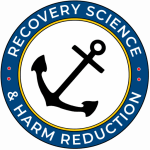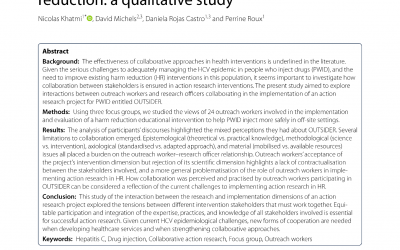View a downloadable version of the meeting summary
Article
Price-Robertson, R., Obradovic, A., & Morgan, B. (2016). Relational Recovery: Beyond Individualism in the Recovery Approach. Advances in Mental Health, 15(2) 108-120. Access the article for free:
Article summary
This article writes about how recovery from substance use is a social process instead of an individual process. The authors describe how the current understanding of recovery is “individualistic recovery”, which focuses on individuals changing their own thoughts and feelings in relation to substance use. Instead, the authors suggest “relational recovery” as a way to address the social conditions that shape a person’s recovery. These social conditions could include relationships with family and friends and educational, economic, and political circumstances.
Several examples of scientific research that contribute to relational recovery are described, including a culturally-sensitive model that considers issues marginalized communities face, such as migration stress, social marginalization, and racism. Other examples include research focused on how the health of social and family relationships are essential to recovery and that addressing these needs can contribute to healthier relationships to substance use.
To apply a relational recovery approach, service providers should consider the social and home lives of their patients, and how these can influence the effectiveness of a treatment plan. Providers should also consider how patients’ life conditions may also contribute to their recovery and if providers can also find ways to address these conditions.

Key themes & discussion summary
The following themes came from the discussion:
Substance use and mental health are linked but distinct
Some people living with a substance use disorder experience mental health issues as a result of their substance use, and some with mental health issues manage their illness through substances. The best treatment options are ones that respond to the needs of the client.
Substance use treatment should address social contexts
Currently, many treatment plans focus on changing the individual without addressing their relationships or environment. Financial models in behavioral medicine make it hard for providers to address social contexts.
Relational recovery can draw people into treatment
Recovery for many people is less about directly addressing substance use and more about leading fulfilling lives through work, school, friends, and family. Some people in recovery may just want ways to connect with others.
Challenges in recovery differ across gender identities
Since many women carry the majority of childcare and household labor in their families, these women face more challenges engaging in their recovery. Services that identify and address these challenges are essential for meeting recovery goals for many women.

